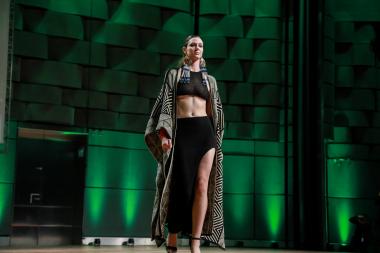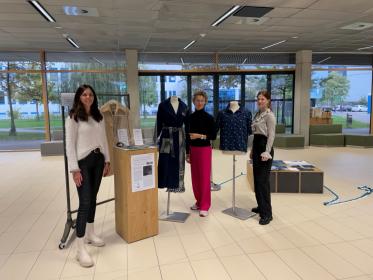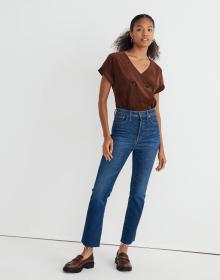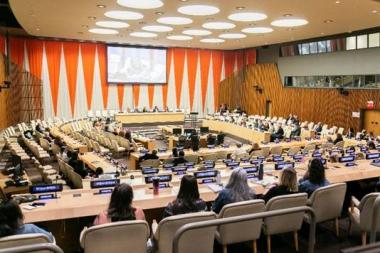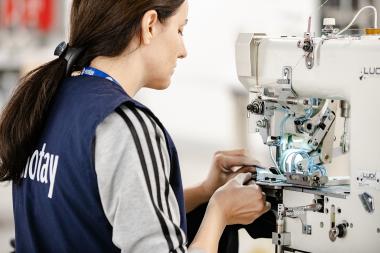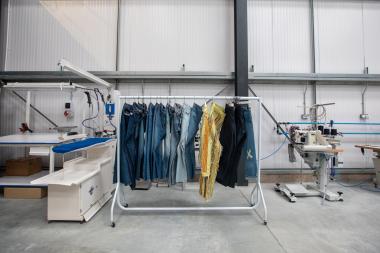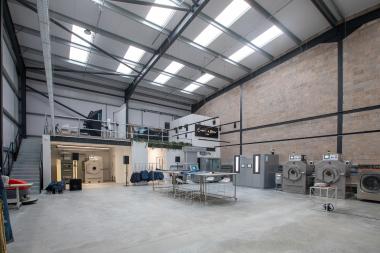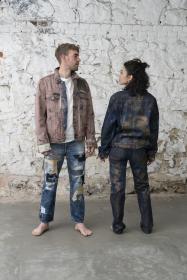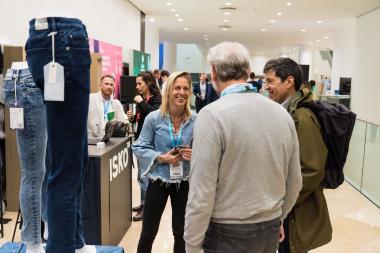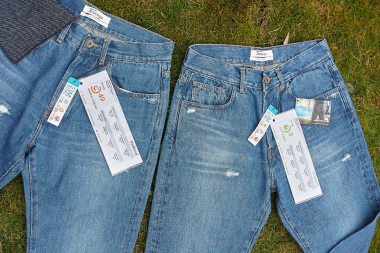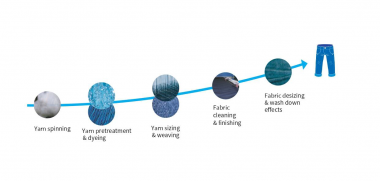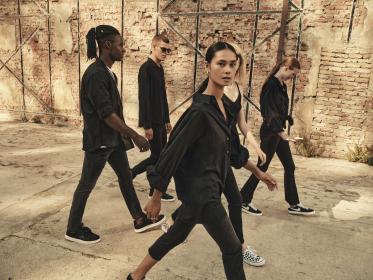Studierende der HSNR mit Fashion Show auf internationaler Textilkonferenz in Aachen
Studierende des Fachbereichs Textil- und Bekleidungstechnik der Hochschule Niederrhein präsentierten Anfang Dezember bei der Aachen-Dresden-Denkendorf International Textile Conference 2022 (ADD) Designs auf einer Modenschau. Bei der hybriden Show zeigten Studierende von drei Hochschulen ihre Kollektionen.
Die Studierenden interpretierten mit ihren Outfits vier aktuelle Themen: Creativity, Sustainability, Innovation und Diversity. Gabriela Paranhos Lopes ließ sich für ihre Strick-Kollektion "MOTIRÕ" von Grafiken, Körperbemalungen und Kunsthandwerk brasilianischer Urvölker inspirieren und übersetzte diese in eine zeitgemäße und nachhaltige DOB Strickkollektion. Verarbeitet wurden nur die Pflanzenfasern Bio-Baumwolle und Leinen.
Die Studierenden Franziska Jauch & Gia Phuc Trinh zeigten ihre Kollektion "D4L", die im Rahmen eines Forschungsprojekts entstand. Sie arbeiteten mit flächigen Lasereffekten und Diamond-Finishings, um Denimgewebe emissionsarm zu gestalten. Die Schnittgestaltung und Print-Designs führen wie ein Zeitstrahl durch die Denim- Geschichte bis hin zu einem Zukunftsszenario.
Die Fashion Show wurde in Kooperation mit dem Team der Neo.Fashion.Berlin ausgerichtet, die jährlich die besten Absolventinnen und Absolventen der Fachrichtung Design deutscher Hochschulen in einer „Best Graduates‘ Show“ während der Fashion Week in Berlin der Fachwelt bekannt macht.
„Die Internationale Textiltagung hat als eine der größten Textilkonferenzen eine europaweite Strahlkraft, hier kommen Wissenschaftler und Anwender regelmäßig zusammen. Das Tagungsmotto dieses Jahres „Textile Impulse für die Zukunft“ wird durch die Designtalente richtig gut sichtbar, ein echter Frischekick, um den Blick in die Zukunft zu lenken“, sagt Dr. Maike Rabe, Professorin für Textilveredlung und Ökologie an der Hochschule Niederrhein.
Hochschule Niederrhein


